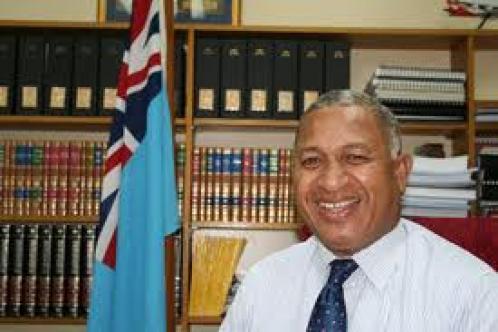
Shalveen Chand
SUVA: It is what Prime Minister Voreqe Bainimarama had always said about Australia, New Zealand and the United States - they were spying on Fiji.
Cables from the whistle-blowing website WikiLeaks reportedly revealed New Zealand had been using its Waihopai communications base to spy on Fiji's military.
Accordingly, the base was used in the 2006 coup - and probably the 2000 coup - although New Zealand officials have always denied they were spying.
The WikiLeaks cables, taken with other information made public on Fiji, point to the NZ government's Communications Security Bureau being capable of listening in to Fiji mobile phones.
At the time Commodore Bainimarama and his colonels publicly expressed fears Australia and New Zealand were engaging in covert activity.
A leaked cable reports on meetings that then US Assistant Secretary of State for intelligence and research, Randall Fort, had in October 2008, with then External Assessments Bureau, the GCSB, the Prime Minister's Department and the Foreign Affairs Ministry of New Zealand.
US deputy secretary Margaret McKean wrote a cable summing up the meeting.
In it she said: "New Zealand views the situation in Fiji as 'acute', and appreciates USG (US Government) support for the Pacific Island Forum position on Fiji." Mr Fort commented that GNZ sigint (New Zealand government signals intelligence) had been critical to USG understanding of the 2006 coup. The cable does not disclose what New Zealand intercepted from the Republic of Fiji Military Forces.
An earlier cable, on March 2, 2007, from the US Embassy in Wellington and written by deputy chief of mission David Keegan, reported that then prime minister Helen Clark understood the implications of a post-September 11 world for New Zealand security.
"She also realised after the Fiji coup that New Zealand had become too reliant on Australian intelligence," the cable says.
"Clark grasps that NZ must 'give to get' and that some of our co-operative operations strengthen her country's security. But she also has been willing to address targets of marginal benefit to New Zealand that could do her political harm if made public.
"Over the past year, she has supported increased counter-terrorism co-operation with us."
Fort was briefed on Chinese activities in the Pacific by Maarten Wevers, chief executive of the Prime Minister's Department, and on Venezuela and Cuba, whose interest in the Pacific he likened to "that of the Russians in the past".
Fort replied "the backtracking of democracy" in the broader Pacific region was a concern to the US.
According to media reports in New Zealand, the US noted that intelligence provided by New Zealand was very helpful in their analysis of the Fiji situation. Then Prime Minister Helen Clark had reportedly realised after the Fiji coup that NZ had become too reliant on Australian intelligence.
Exactly what information NZ gathered from listening in to communication between Fiji's leaders has not been declared by WikiLeaks.
In December 2008, the Fiji government released a statement accusing Australia and NZ of spying on Fiji and tapping Fiji government phones.
This also led to diplomats being considered persona non grata.
The NZ government did not comment on the issue then and Commodore Bainimarama said Australia's Foreign Affairs Minister Stephen Smith did not deny the statement when it was put to him. - The Fiji Times/Pacific Media Watch



